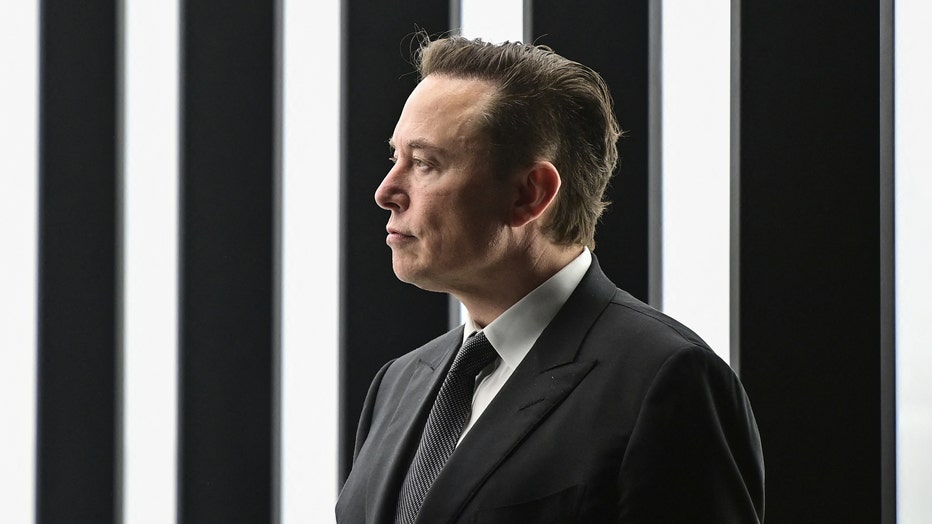Elon Musk takes 9 percent stake in Twitter, becoming biggest shareholder
Tesla CEO Elon Musk acquired a 9% stake in Twitter to become its largest shareholder at a time when he is questioning the social media platform’s dedication to free speech and the First Amendment.
The ultimate aim of Musk's 73.5 million share purchase, worth about $3 billion, is not known. Yet in late March Musk, who has 80 million Twitter followers and is very active on the site, questioned free speech on Twitter and whether the platform is undermining democracy.
It's unclear just when Musk bought the stake. A U.S. Securities and Exchange Commission filing made public on Monday says the event triggering the filing happened March 14. His stake meets the criteria for being a long-term "passive" investor, one looking to minimize buying and selling of the shares.
Yet Musk has also raised the possibility, publicly before his massive and loyal Twitter following, that he could create a rival social media network.
Industry analysts are skeptical about whether the mercurial CEO will remain on the sidelines for long.
RELATED: Elon Musk and Grimes secretly welcome a second child
In a note to investors, CFRA Analyst Angelo Zino wrote that although Musk's intent is unclear, Twitter could be viewed as an acquisition target because the value of its shares have been falling since early last year.
Jack Dorsey stepped down as CEO in November. Musk’s stake in Twitter more than four times the size of Dorsey’s, who co-founded the company and was the largest individual shareholder until Musk arrived.
"Musk's actual investment is a very small percentage of his wealth, and an all-out buyout should not be ruled out," wrote Zino, who covers Twitter and social media.
Twitter's stock surged more than 28% Monday. Since March 14, the date listed on filing with the U.S. Securities and Exchange Commission, shares of Twitter are up nearly 50% meaning that Musk's investment has paid handsomely, so far.
Twitter did not immediately respond to a request for comment.
Musk told his millions of followers on Twitter that he was " giving serious thought " to creating his own social media platform, and has clashed repeatedly with financial regulators about his use of Twitter.
Musk is locked into a bitter dispute with the SEC over his ability to post on Twitter. His lawyer has contended in court motions that the U.S. Securities and Exchange Commission is infringing on the Tesla CEO’s First Amendment rights.

Tesla CEO Elon Musk is pictured as he attends the start of the production at Tesla's "Gigafactory" on March 22, 2022 in Gruenheide, southeast of Berlin. (Photo by Patrick Pleul / POOL / AFP via Getty Images)
RELATED: Elon Musk says his Starlink internet is ‘now active’ in Ukraine
In October of 2018, Musk and Tesla agreed to pay $40 million in civil fines and for Musk to have his tweets approved by a corporate lawyer after he tweeted about having the money to take Tesla private at $420 per share.
The funding was far from secured and the electric vehicle company remains public, but Tesla’s stock price jumped. The settlement specified governance changes, including Musk’s ouster as board chairman, as well as pre-approval of his tweets. The SEC brought a securities fraud charge, alleging that Musk was manipulating the stock price with his posts.
Musk’s lawyer is now asking a U.S. District Court judge in Manhattan to throw out the settlement, contending that the SEC is harassing him and infringing on his First Amendment rights.
The SEC responded in a court motion, saying it has legal authority to subpoena Tesla and Musk about his tweets, and that Musk’s move to throw out the settlement is not valid.
The SEC also disclosed that it is investigating Musk’s Nov. 6, 2021 tweets that asked followers whether he should sell 10% of his Tesla stake. The commission confirmed that it issued administrative subpoenas while investigating whether Musk and Tesla are complying with disclosure controls in the 2018 agreement.
Musk ended up selling more than 15 million shares worth roughly $16.4 billion. With some sales in late December, Musk is close to selling 10%.
Musk's tweets about Twitter and his stock buy came after Donald Trump was banned from Twitter and other top social media platforms following the Jan. 6 Capitol riot last year that critics accused him of inciting. The ban has raised difficult questions about free speech in a social media industry dominated by a few tech giants — an issue that Trump and conservative media have seized upon.
Musk has not spoken specifically about how he would change rules at Twitter, but the social media platform's history of suspensions and bans is well documented.
Twitter earlier this year banned the personal account of far-right U.S. Rep. Marjorie Taylor Greene for multiple violations of the platform’s COVID-19 misinformation policy. The Georgia Republican’s account was permanently suspended under Twitter’s "strike" system, which uses artificial intelligence to identify posts about the coronavirus that are misleading enough to cause harm to people. Two or three strikes earn a 12-hour account lock. Four strikes prompt a weeklong suspension. Five or more strikes can get someone permanently removed from Twitter. Twitter had previously suspended Greene’s personal account for periods ranging from 12 hours to a full week.
Other people banned from Twitter in recent years include Steve Bannon, for suggesting the beheading of Dr. Anthony Fauci, former Ku Klux Klan leader David Duke for breaking the social media site’s rules forbidding hate speech, and right-wing conspiracy theorist Alex Jones and his Infowars show for abusive behavior.
Musk's revelation about his stake in Twitter shares comes two days after Tesla Inc. posted first-quarter delivery numbers. While the company delivered 310,000 vehicles in the period, the figure was slightly below expectations.
____
Matt O'Brien contributed from Providence, Rhode Island. Krisher reported from Detroit.


